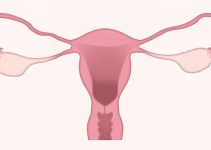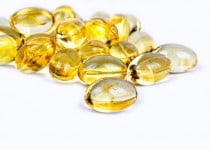Did you know that antibiotics could affect the menstrual cycle? Indeed, most of them can have an effect on menstrual periods, with some reporting delays. Find out more about the connections between antibiotics and the menstrual cycle below.

Your Regular Cycle
During the first 14 days of a 28-day menstrual cycle, your follicle will start to grow and kick-start the initial production of additional estrogen. It will start to make the endometrium lining thicker. When ovulation commences, the estrogen hormone will be joined by the progesterone hormone from the corpus luteum to make the endometrium mature and thicker.
How Antibiotics Affect the Normal Cycle
Antibiotics can interfere with your body’s mechanism, which secretes the human chorionic gonadotrophin hormone (hCG) and cause uterus shedding to delay your period. This will happen mainly because the available estrogen will be reduced to cause a change in your cycle for it to become irregular.
A study done in 1947 shows that Penicillin caused heavier bleeding, changes in pain and PMS symptoms and the start of the cycle itself, but they stated that they weren’t able to find any correlative information regarding that.
There are actually two ways antibiotics could affect the estrogen metabolism. Most antibiotics are metabolized in the liver, and when they are present, the metabolism rate of estrogen as well as progesterone will be affected. This can interfere with the estrogen supply that is in the blood and causes an irregularity of the menstrual cycle.
In order for the follicular phase of menstruation to occur, the estrogen is needed to stimulate the ovaries and thicken the uterine wall. Without this, ovulation doesn’t happen or it happens late, which obviously affects when your period will arrive.
Other Issues with Antibiotics
There are some antibiotics that will cause diarrhea-like symptoms when they interfere with the stomach flora.
Even though it’s supposed to kill the bad bacteria in the body, it also affects and kills the good bacteria as well, which is why some women report yeast infections as well after their use of antibiotics.
The entero-hepatic circulation will be affected and cause a reduction of estrogen levels in the blood. It’s becausegut bacteria that usually re-activates small amount of estrogen in intestine are no longer available [1].
When the estrogen levels change in the blood, your cycle will be affected low estrogen levels fail to stimulate pituitary release of hormones. Your body actually ovulates based on the pituitary gland’s ability to identify that sufficient estrogen is in the blood, and then cause LH surge which causes ovulation on 14th day of cycle. So antibiotic treatment can affect these delicate hormonal balances.
So your body doesn’t have enough estrogen to regulate normal menstrual cycle.
Another important point to note is that antibiotics change your body’s metabolic performance and the ability to sustain a steady hormone level.
Use the Second Form of Protection if you are Not Trying to Get Pregnant
Antibiotics can also affect the estrogen as well as progestin levels in oral contraceptive pills. Estrogen is actually an active ingredient in these pills and the antibiotics will affect how it’s metabolized in the body.
Rifampicin and Rifabutin are liver enzyme-inducing drugs and can clear the estrogens from blood at faster rate thereby reducing the contraceptive benefit anticipated from contraceptive pills.
You should get medical advice if you are taking antibiotics in the first seven days of a new pill packet and you engage in sexual intercourse in the last five to seven days. The antibiotics could disrupt the normal protection that the pills provide and cause you to get pregnant.
So if you are taking antibiotics, ensure that you are also protecting yourself as well if you are not looking to have another child right now.
Reasons other than antibiotics that affect your period
While antibiotics get a bad rap regarding the effect on the body and the menstrual cycle, there can be other potential issues and situations that can go on with the body during the time frame. When sick, antibiotics or not, the body is being stressed to the max.
It is trying to accommodate for being sick and the stress of still having to maintain a home, a job, children, a spouse (because you know, moms don’t take sick days). So take into consideration that it can be affected by the meds or by stress, weight loss or gain, usage of birth control, and PCOS or thyroid conditions.
How to Prevent Antibiotic Related Period Issues
One way to help balance your hormones while you are on antibiotics could be to switch up your diet while you are taking antibiotics (and after as well if you are looking to maintain a healthy balance).
In order to balance the estrogen levels, you can add some fish oil, vitamin D, and vitamin B to your diet as well as probiotics, which can help balance that gut bacteria in a beneficial way.
Plus you’ll want to get enough sleep (which helps so many bodily systems) and be stress free (see above).
In general, antibiotics can affect so many bodily systems. Know that they shouldn’t be something that you take on a regular basis because it can cause antibiotic resistance in the body.
Take them only if necessary and ensure that you take the proper precautions for preventing pregnancy and keeping your other systems in balance.
If your period is still late, however, take a test and be confident with the results. But if you are still concerned with what is going on, be sure to talk to your doctor if you need more information on the effects of antibiotics and menstrual cycle.
References
- Estrogen-gut microbiome axis: Physiological and clinical implications. https://www.ncbi.nlm.nih.gov/pubmed/28778332




Great article! Is there a better cycle phase to take antibiotics if you can choose? I have to take a week of antibiotics every month for 6 months for SIBO. Which cycle week would be a better choice? Thank you.
Hello Kaisa, antibiotic use can speed up estrogen metabolization by the liver, which may reduce the available estrogen in the bloodstream. So it is better to take them in the second part of the cycle if possible.
Am sick and I took antibiotics with some other drugs I woke up pass out green defecate and am meant to be on my period today
I had pre menstrual cramps normal symptoms of period but its delaying. am I pregnant?
No, the use of antibiotics has not affected your periods. Being sick or having a fever can set the cycle off for a few days and there’s nothing to worry about.
If you’ve had no sex during this period then there’s no biological cause of your delayed period, it’ll be back on track soon. However, if you’ve had unprotected sex, wait for two-three days and take a pregnancy test.
I have a monthly period ,my question is if I take antibiotics or amoxicillin my monthly period stop or not? Thanks for the reply soon I appreciate
Hello Rose, that is highly unlikely to happen just from taking antibiotics.
Hi, after taking antibiotics for my sore throat I found out that I’ve been bleeding slightly/ spotting. is this normal?
Hi Anna, yes that can be normal. Some women’t bodies react differently to antibiotics and it can affect your period, especially if you were close to getting it in the first place when you took your antibiotics and soon after finishing them.
Hi am fiona
Have been menstruating for the past two weeks now and it hasn’t stopped, please what medication can I use… Because I am fed up already
Hi Fiona, make an appointment with your doctor. Bleeding for two full weeks is something that warrants that call to them.
I started on Levofloxacin on June 3rd and wasn’t supposed to be on my period for 2 weeks. I started what appeared to be a period. I’ve been done with the antibiotics since the 13th. Now it’s the 19th and I’m spotting again. Is this from the antibiotic?
Hi Azure, antibiotics in combination with you being sick can most certainly be a reason for your period to be odd for a month. They have an affect on the body and can cause a delay or spotting. This could be normal for this cycle.